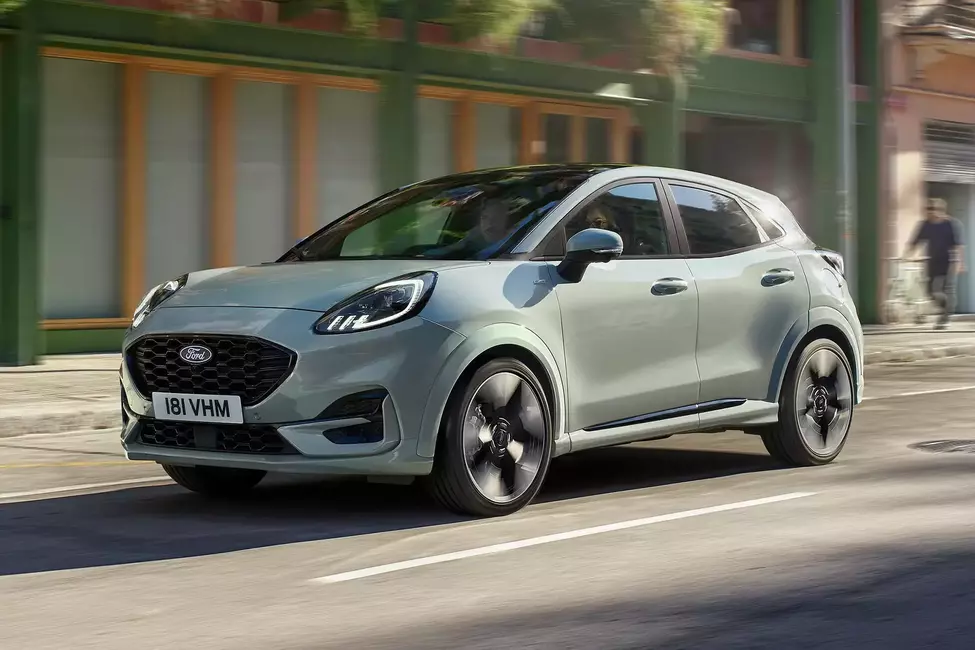What is a mileage allowance?

What is a mileage allowance?
If you’re financing a car, you may be limited in how many miles you’re permitted to drive. Here’s everything you need to know.
Many car finance deals come with conditions attached, and one of the most significant when it comes to your monthly payments is mileage limits. You’ll find this type of clause mostly in PCP finance and leasing deals.
As a general rule, the lower the mileage allowance on your contract, the lower your monthly payments, because a lower mileage car will be worth more to the finance or leasing company at the end of the deal. On a PCP deal this value is a key part of the monthly payment calculations, even if you decide to buy it at the end of the contract. On a leasing deal it’s important because you’ll be handing the car back no matter what.
The majority of people that take out a PCP finance deal never own the car, instead handing it back or trading it in at the end of the contract. When a deal is drawn up, the costs are based on the estimated value of the car at the end of the contract, and how many miles its done is a key element of that value. Consequently, all PCP deals – and lease deals too – feature a mileage limit.
If you opt for a lower mileage limit, that means the car will be worth more at the end of the contact. That means lower monthly payments on a lease deal. The same is true on a PCP deal, but because the car will be worth more at the end of the agreement, you’ll face a larger optional final payment.
What is an excess mileage charge?
Keeping your mileage limit as low as possible will save you money, but it’s important to pick a realistic target. If you go over the limit, you’ll be charged excess fees at the end of the contract, which could soon add up.
The cost of this excess mileage charge can vary, but it’s generally agreed on in advance with a per-mile amount – typically between 3p and 10p, but it can be as high as 70p per mile. This can result in substantial extra costs if you go over the agreed limit.
These charges are almost always more than it would cost you to have a higher mileage limit in the first place. This is deliberate – finance and leasing companies rely on accuracy in predicting a car’s future worth, so they encourage customers to choose realistic mileage limits.
The charges are often stepped up as you go further over the limit. For instance, you could be charged at a higher per-mile rate once you go 5000 miles over the initial limit.
When you sign your contract, check to see if the agreed excess mileage limit includes VAT – if it doesn’t, you’ll need to factor that in as an extra expense.
It’s important to note that it’s usually possible to change your mileage allowance in the middle of your contract. Finance and leasing companies recognise that people’s circumstances and travel habits change, so if that happens to you it’s always worth speaking to the lender to work out a new deal. Typically it’ll work out more affordable than just paying the excess at the end of the contract.
How can I work out my annual mileage?
A typical driver covers around 6600 miles a year according to Government data from 2022. But it doesn’t take much to add extra miles – a 10-mile commute will add up to more than 5000 miles over the course of a year, just driving to and from work.
You’ll need to think about your weekly trips and any other longer foreseeable road trips – holidays, journeys to see family and so on can all add up. If in doubt, be over cautious and select a mileage limit that’s higher than you think you’ll cover. This will reduce your chance of extra charges at the end of your contract.
Why not go for a low-mileage contract and pay excess mileage charges?
Taking a low-mileage contract and then paying excess fees at the end will usually be a more expensive option than going for a more realistic mileage limit.
However, it’s worth doing the maths – sometimes, if the excess mileage fees are low, it can sometimes work out cheaper overall to pick a lower mileage limit. Usually, though, this method will cost you more.
If you’re midway through a contract and think you’ll go over your mileage limit, speak to your finance or leasing company and ask to increase your limit. It’ll likely up your monthly payments slightly, but it’s normally a cheaper way to proceed overall.
Do mileage charges vary on different forms of car finance?
Excess mileage charges are generally applied to PCP finance deals and to lease agreements, because the lender is relying on the estimated value of the car at the end of the deal.
Hire purchase (HP) finance wouldn’t normally impose a mileage limit, because the contract is set up so that you own the car at the end of the deal. Its value is irrelevant to the finance company. That said, there are some hybrid HP products with a balloon payment at the end – these could well have mileage limits. If in doubt, check the exact terms of your contract.
Avoid excess charges by handing your car back early
If you’re financing a car through PCP or HP, you can hand the car back early via a process called Voluntary Termination. As long as you’ve paid half of the total balance due, you should not incur any excess mileage charges. For PCP deals, that balance includes the optional final payment.
However, this isn’t a loophole to avoid paying your dues. Voluntary Termination is a process to let those struggling financially return a car early. Some finance companies could still chase you for excess mileage payments, but if you’ve followed the correct Voluntary Termination process (and the car is in a reasonable condition) then they shouldn’t be able to enforce it.
Voluntary Termination doesn’t apply to leasing deals. It’s not usually possible to hand a lease car back early to avoid excess fees – you may be liable for early cancellation fees as well as the remaining monthly payments.
Browse our most popular models

24/09/2024
Best Car Deals for New and Used Cars
Whether you're looking for the best PCP deal, huge savings with a great car leasing deal or car finance discounts, we’ve searched to find the best car deals for you.
Best 0% APR Car Finance Deals
If you're looking for a 0% car finance deal on a new car, you've come to the right place. We've searched to find the best 0 interest finance car deals out there to help you save money.
Best PCP Car Deals
Personal Contract Purchase (also known as PCP) could allow you to get your hands on a new car without needing to stump up a significant sum of cash all at once. And to help you out, we've rounded up all the best PCP car deals on offer in the UK today.
Promotions
Trustpilot Reviews
Get our latest advice, news and offers
Keep me updated by email with the latest advice, news and offers from heycar.
By submitting you agree to our privacy policy














